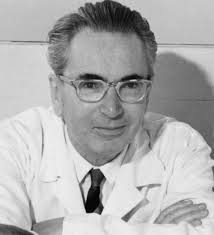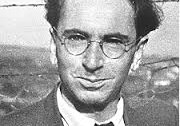My writing about adversity really has two purposes. I am hoping that putting my ideas to paper (or keyboard) will help me continue to grow and overcome the fears and struggles I continue to deal with thanks to government prosecution. But my other hope is that my efforts will help readers be able to look at their own situations and realize they can get through it as well. I hope to instill in them (you reading this) the notion of “that which does not kill me makes me stronger.”
As I was researching Louis Zamperini’s story for last week’s post, it reminded me of a story I heard more than 30 years ago. Depending on where and when you went to school, you’ve probably heard the story of Viktor Frankl as well. Here is a man whose life was going along pretty well. He was an internationally respected philosopher and psychotherapist, a published author and public lecturer. Then, one day in 1942, he was arrested by the nazi forces and deported to the Theresienstadt Ghetto, and two years later he and his family were sent to Auschwitz concentration camp.
In the nazi camps, Frankl was separated from his family, and forced to endure constant beatings, physical labor,

malnutrition, disease and having to watch while other prisoners were sent to the gas chambers. His incredible perseverance is summed up by a statement on the Frankl Institute website:
In the last camp he comes down with typhoid fever. To avoid fatal collapse during the nights he keeps himself awake by reconstructing his book manuscript on slips of paper stolen from the camp office.
After he was freed from the camp by the U.S. Troops, Frankl went on to inspire millions of people with his story and his work “Man’s Search for Meaning” which sold more than nine million copies before his death in 1997 and at least another million since then. Combined with his many other books and lectures, Frankl has accumulated an exhausting list of observations regarding how and why people are able to overcome great adversity, and I recommend we all remember the one I believe to be most inspiring while we try to overcome the adversity in our own lives.
”Those who have a ‘why’ to live, can bear with almost any ‘how’.”
Viktor Frankl found that when a person had faith, hope and a reason to live, they could bear any adversity. I think that is important to keep in mind. Decide what your goal is and what your reward will be once you meet that goal. For many of you, the goal and reward will be very straight forward, but for others, it may be more abstract. For me, the goal was the end of the trial, and my biggest reward was the weight of uncertainty being lifted from my shoulders. It’s not always easy to stay focused on your goal or the reward but it is vitally important, because if you lose focus on what it is that you have to live for, the desire to give up can quickly become overwhelming. Frankl believed that when one was suffering, one needed hope to get through their darkest moments. Without hope there is no point in enduring the suffering.
I was most afraid of the uncertainty of my situation. I did not know what would happen to me or my family if I was convicted and sentenced to jail, or if I had to pay some outrageous fine that would bankrupt me. But even if the result was something I did not want, the fact that I would finally know what was in store and come up with a plan to deal with it was a great comfort to me. At many points in my trial, there was nothing I could do to control the outcome; all I could control was my outlook. Frankl also wrote, “Everything can be taken from a man but one thing: the last of the human freedoms—to choose one’s attitude in any given set of circumstances, to choose one’s own way.” So no matter what adversity you face, keep your goals in mind, stay focused on them with a positive mental attitude, and Never Give Up!

